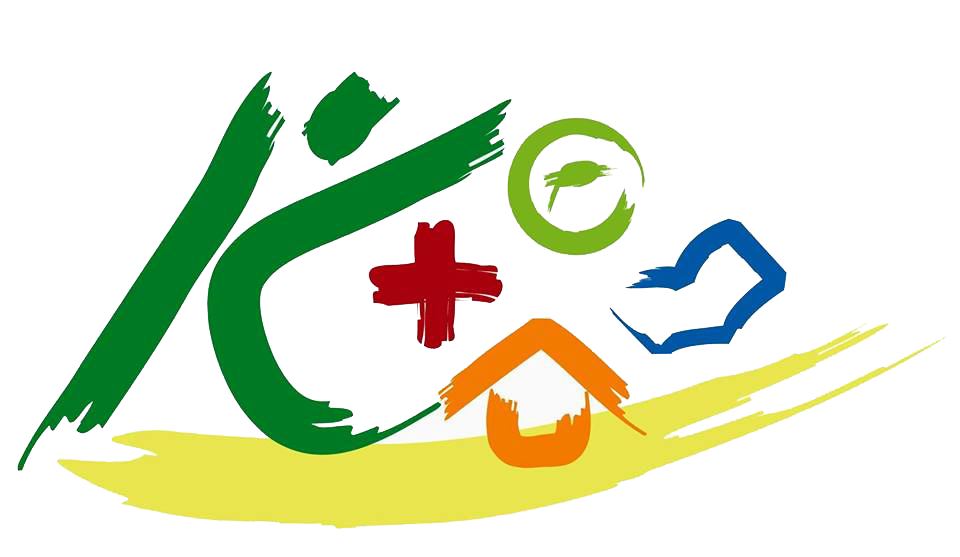
KASAGANA-KA Development Center, Inc.
 Is a social development nongovernment organization. At the core of its operation is direct and multiple services to its beneficiaries aimed at creating vibrant economic and social infrastructures in urban poor communities. It uses microfinance as a key strategy in providing additional livelihood opportunities to disadvantaged and vulnerable families in Metro Manila and neighboring urban areas. As a service organization, it is guided by a perspective that uplifting the conditions of the urban poor is a multifaceted undertaking. It has thus bundled its savings and loan activities with services that offer fundamental social protection, including microinsurance through the KASAGANA-KA Mutual Benefit Association, education, health, and shelter. Women comprise the primary beneficiaries of KDCI but members of these women's families, particularly children of school age, also directly benefit from the various products and services it offers.
Is a social development nongovernment organization. At the core of its operation is direct and multiple services to its beneficiaries aimed at creating vibrant economic and social infrastructures in urban poor communities. It uses microfinance as a key strategy in providing additional livelihood opportunities to disadvantaged and vulnerable families in Metro Manila and neighboring urban areas. As a service organization, it is guided by a perspective that uplifting the conditions of the urban poor is a multifaceted undertaking. It has thus bundled its savings and loan activities with services that offer fundamental social protection, including microinsurance through the KASAGANA-KA Mutual Benefit Association, education, health, and shelter. Women comprise the primary beneficiaries of KDCI but members of these women's families, particularly children of school age, also directly benefit from the various products and services it offers.
KDCI traces its history from the Foundation for Development Alternatives, an NGO formed in 1985 in response to the critical need to address the concerns of the urban poor. As a complement to its work on land tenure security and shelter development, FDA also implemented an economic program targeting urban poor women. In time, the loan and savings program expanded and was established as a separate entity, which was named KASAGANA-KA Development Center, Inc.
Registered with the Securities and Exchange Commission as a nonstock, nonsectarian, not-for-profit NGO in 2002, KDCI has received certification from the Philippine Council for NGO Certification. It is also registered with and licensed by the Department of Social Welfare and Development. It is a member of national and international networks, including MCPI (Microfinance Council of the Philippines), PHILSSA (Partnership of Philippine Support Service Agencies), PinoyME (Filipino Micro Enterprise), and MFTransparency.
KDCI uses a methodology which it calls GRASYA, a Pilipino term for blessing or grace. The term is also an acronym that emphasizes its inspiration from the combined strength of the methodologies popularized by the Grameen Bank and ASA (Association for Social Advancement; "Asa" is also a Bengali word for hope). While maintaining a strategy of center or group formation, KDCI gives out individual loans through a guarantor system, instead of engaging in group lending.
KASAGANA-KA is an acronym for Kabuhayan sa Ganap na Kasarinlan (livelihood for genuine self-reliance) and has become the organization's rallying phrase. It is an exhortation to being one with others in achieving well-being and development. Thus, from its initial loan (K-Negosyo) and savings (K-Impok) programs, KDCI has included microinsurance services (K-Seguro) as well as education (K-Edukasyon), health (K-Kalusugan),shelter (K-Bahay), K-Benipisyo, K-Kalamidad, and K-PWD programs. KDCI also takes care of its staff members though its K-Kaagapay services. All these constitute essential elements in forming dynamic development-convergent links and infrastructures for urban poor families and their communities. Each is matched with services and products, which address such concerns as the women beneficiaries' along with the staff's values affirmation, capability building, skills enhancement, emergency assistance, and routine necessities.
From its initial 200 women-beneficiaries, KDCI had expanded its outreach to nearly 23,000 women when it celebrated its 11th anniversary in September 2013. It has 1,135 centers in five Metro Manila cities (Caloocan City, Marikina City, Pasig City, Quezon City, and Las Piñas City) and in seven municipalities and six cities in the provinces of Bulacan (Bocaue, Marilao, Norzagaray, Meycauayan City, and San Jose del Monte City), Rizal (Antipolo City, Cainta, Taytay, San Mateo, and Rodriquez), Laguna (Biñan City), and Cavite (Dasmariñas City and Trece Martires City).
A center is composed of 14 to 40 members residing in a contiguous neighborhood, and receives direct technical support from a KDCI socioeconomic officer. Responsible for five or more centers with a total of at least 275 members, the socioeconomic officer attends not only to the loan processing needs of members but, more important, to the capability-building requirements of the centers. The socioeconomic officer reports to a field office manager, who supervises at least 50 centers. Representing KDCI's physical presence in its areas of operation, each of the 23 field offices has a facility located close to the centers. These field offices are grouped into clusters, supervised by a cluster manager. KDCI's current total outreach is grouped into four clusters, namely: Central Cluster composed of Quezon City and Caloocan City field offices; East Cluster Rizal, Antipolo City, and Pasig City; North Cluster Bulacan; and South Cluster Las Piñas City, Laguna, and Cavite. These clusters are in turn organized into two areas headed by an area manager.
KDCI's president and chief executive officer, along with the chief operating officer, area and managers and members of the finance, internal audit, human resources management, and administrative staffs, holds office at its main facility in Quezon City (which it shares with KMBA). Led by the president and chief executive officer, the unit and area managers comprise KDCI's Steering Committee; this group together with the field managers and selected finance staff members constitutes the Management Committee. An eleven-person Board of Trustees, including the president and chief executive officer as ex officio member, completes KDCI's leadership roster. (Three members of the KDCI Board of Trustees − the president and chief executive officer and the two client-beneficiary representatives − sit in the KMBA Board of Advisers.)